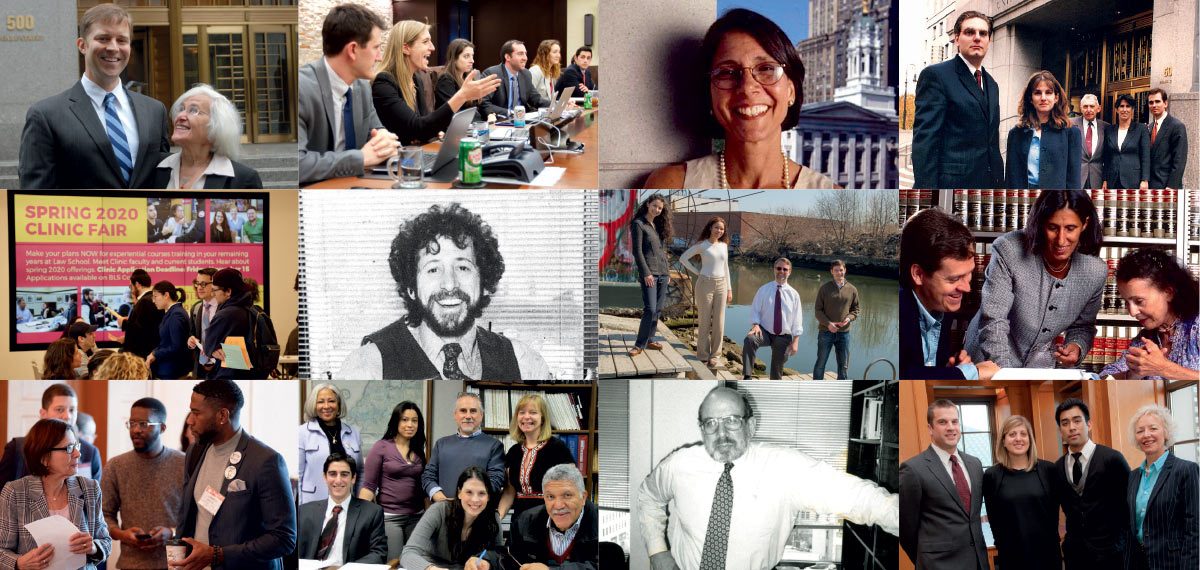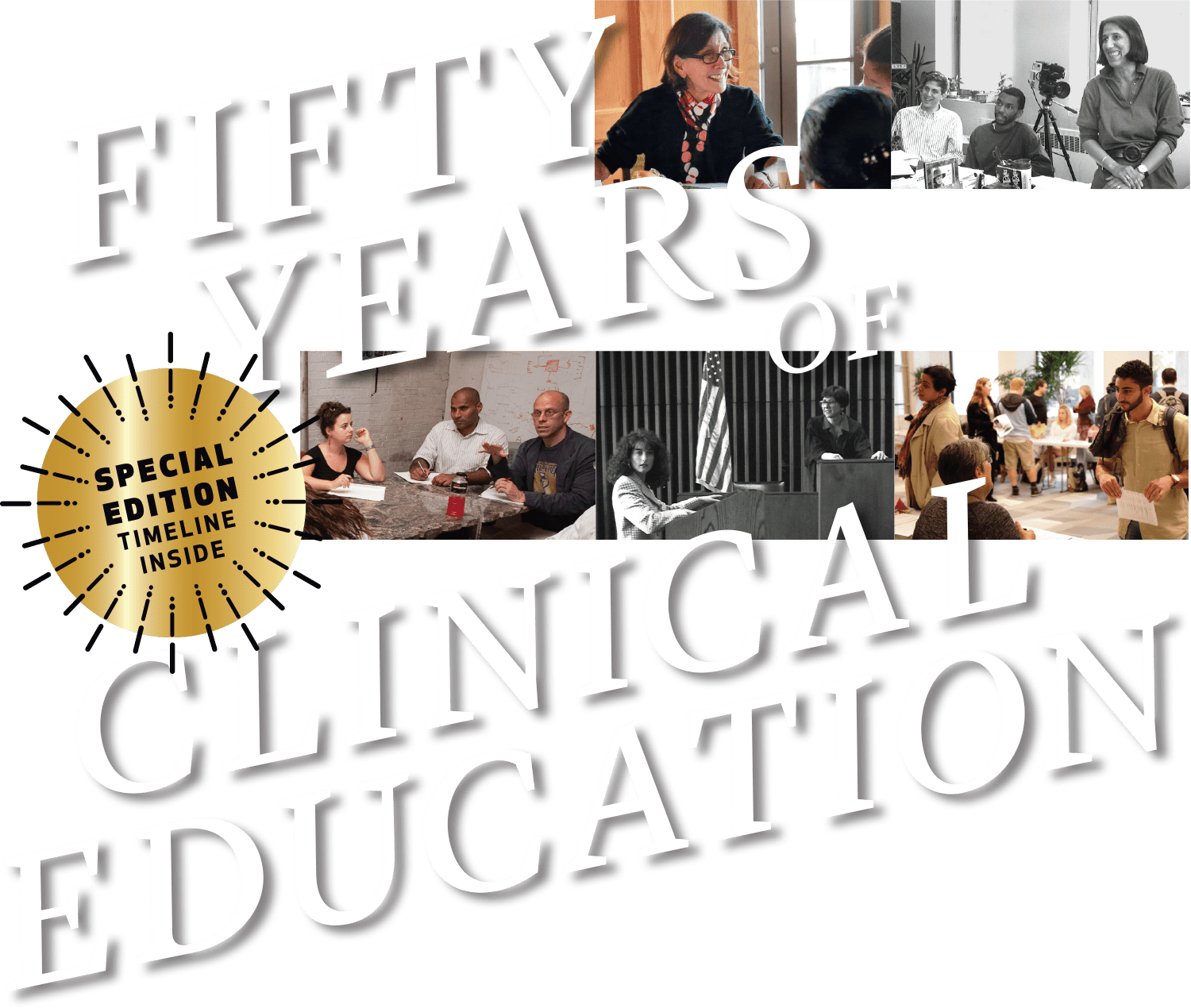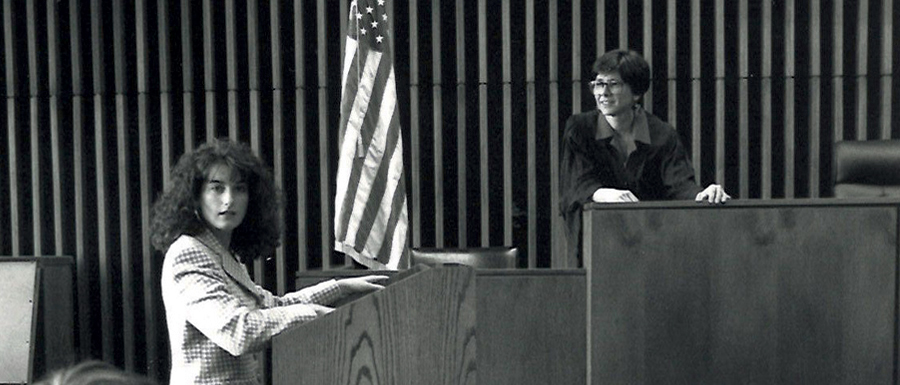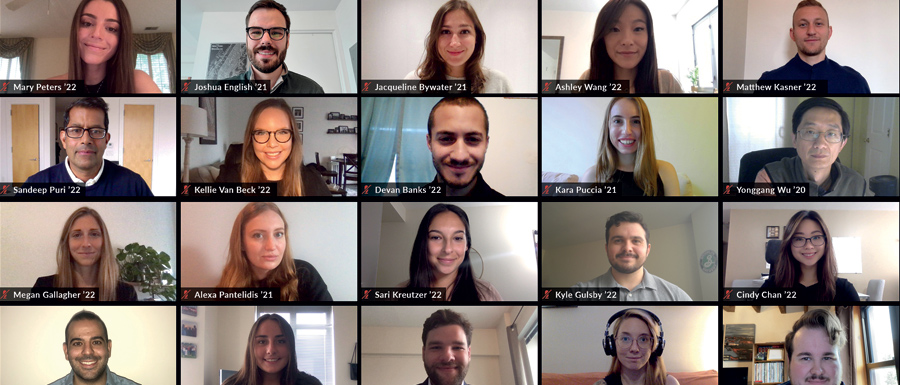Executive Director of Communications
Rosemarie Yu
Knox Design Strategy
Caitlin Monck ’02
Edward Janger
Michael Meyer
Seth Olenick
Mike Olivella
Heather Shertzer
Conor Sullivan
Brooklyn Law School
250 Joralemon Street
Brooklyn, NY 11201
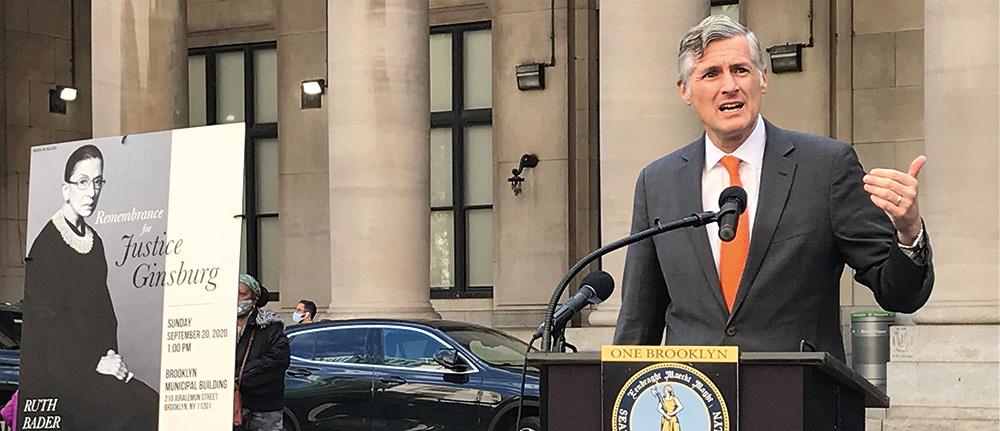
N THESE DAYS so full of challenges, anxiety, and doubt, and at the risk of tempting fate, it is my pleasure to report that the fall semester is proceeding smoothly, albeit very differently, so far. It is also my distinct pleasure to be able to share some good news amid the gloom.
As this issue’s feature story documents, after 50 years, our clinical program is showing its maturity but not its age—building on a proud tradition, our clinics are stronger than ever. The same is true of our faculty, and I’m thrilled whenever I can give our professors the recognition they deserve, as I have been able to do multiple times recently. One special joy of serving as dean is the opportunity to confer a named chair on a tenured faculty member. Chairs are awarded to distinguished professors in recognition of their outstanding contributions to the scholarly community, the school, and the profession. In the last month, I have had the triple pleasure of recognizing three faculty colleagues in this way (read more here).
In mid-September, I announced that Professor William Araiza would be the new occupant of the Stanley A. August chair. Araiza has served the Law School as its vice dean, and he has been a prolific and thoughtful scholar, the author of multiple casebooks as well as numerous articles and monographs. His most recent book, Animus, which traces a theory of unconstitutional bias over two centuries of case law, has been widely cited by scholars and in the media. Araiza is also a strong supporter of legal education, both as an admired classroom teacher and by holding leadership positions in national law school organizations.


President and Joseph Crea Dean
This is, event or no, a time to celebrate what you have achieved and what lies before you. You have persevered through significant challenges and circumstances, and you deserve congratulations as you arrive at this day and pass this threshold.

Former U.S. Attorney for the Southern District of New York
You are about to join what I still think is a noble profession, in which you can do so much good for so many people. I look forward to seeing great things from all of you.

New York State Attorney General
Now, as never before, New York and the nation need your expertise and commitment to the rule of law. I know you have what it takes.

Brooklyn Borough President
In the words of Marcus Aurelius, what impedes us empowers us. Graduates, you are empowered, and you will use what you’ve learned to empower others.

Brooklyn District Attorney
This won’t be the last curveball you’ll face in your legal career, but I know Brooklyn Law very well. Your education has prepared you to meet unexpected challenges, to overcome obstacles, and, most important, to fight for justice.
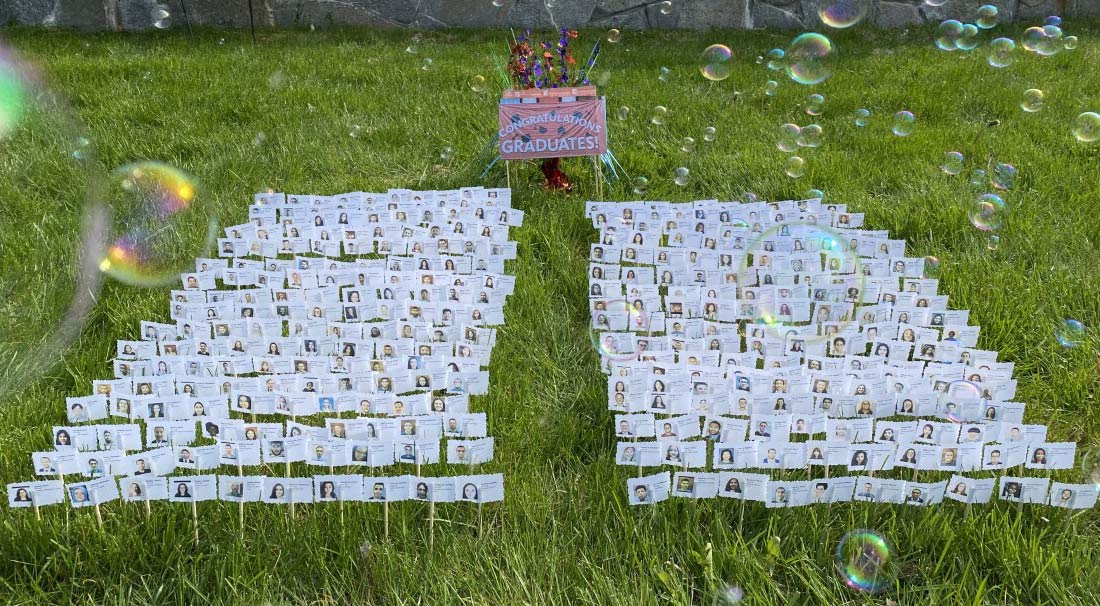
Grad Celebrates Class with Mini Ceremony
ALEXANDRA LENCZEWSKI ’20 honored her classmates with a miniature graduation ceremony in her backyard that quickly went viral, leading to coverage by ABC News, NBC News, Good Morning America, Yahoo News, and international outlets.
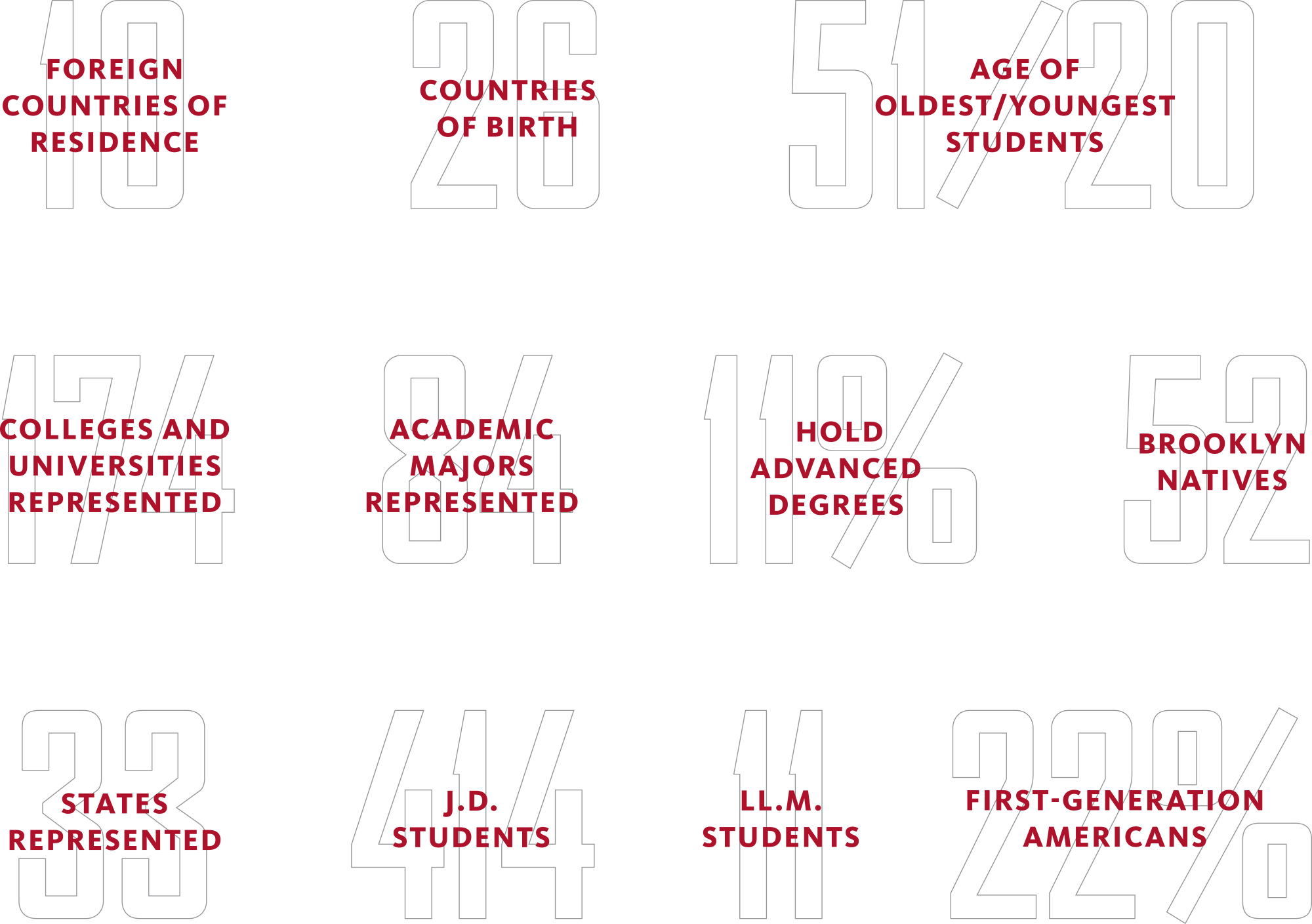

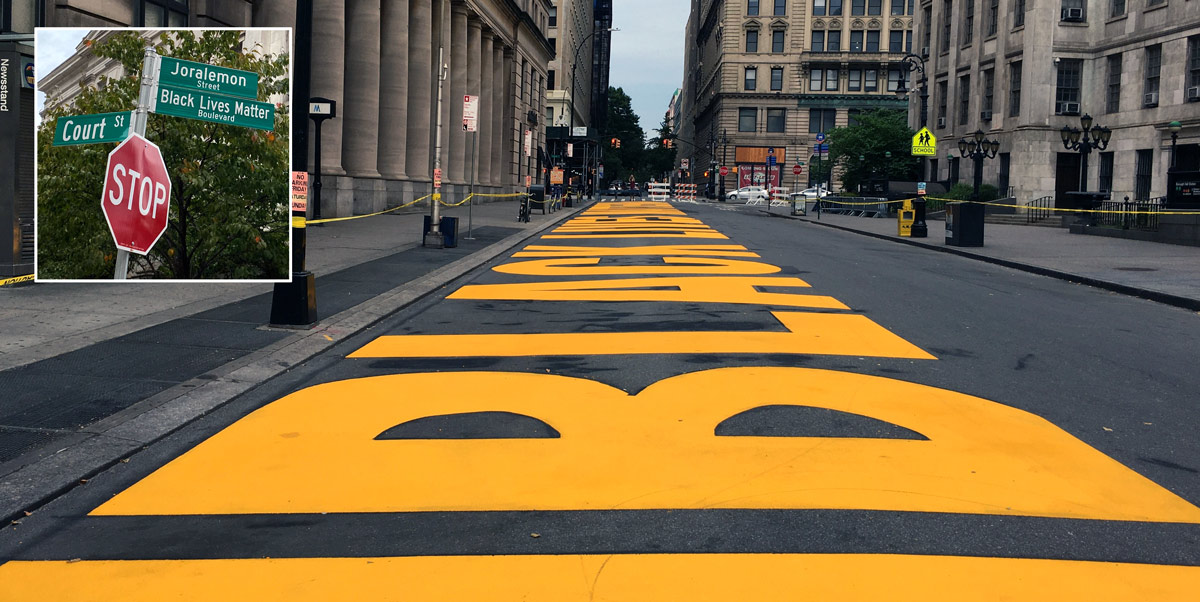
Joralemon Street Co-Named Black Lives Matter Boulevard
On June 29, Brooklyn Borough Hall unveiled a new Black Lives Matter mural along the newly co-named Black Lives Matter Boulevard. The mural runs along Joralemon Street between Court Street and Boerum Place, where the Law School’s main building is located.
The mural and street co-naming commemorate the Black Lives Matter movement, paying tribute to the thousands who have marched in Brooklyn and across the nation to protest police violence. Cadman Plaza, across the street from the Law School, has been a site of frequent protests and gatherings since May.
Brooklyn Law School Students Take Top Prizes in National Writing Competition
Elizabeth Potter ’20 and Emily Spanyer Sanford ’20 were awarded the top two prizes in the 2019–20 Louis Jackson Memorial National Student Writing Competition, which recognizes the best writing in the field of labor and employment law among current students. Potter placed first for her manuscript “Revoking Religious Employers’ License to Discriminate: How to Limit the Ministerial Exception to What the First Amendment Requires After Hosanna–Tabor,” winning a $3,000 scholarship. Sanford won one of two second-place prizes for her manuscript “Equality in Parental Leave: How Women Can Achieve Workplace Parity Through Equal Parental Leave Policies,” and was awarded a $1,000 scholarship.
“This is one of the few times that this award has been won by two students from the same school, and we should be very proud of their work,” said Professor Minna Kotkin, who specializes in employment discrimination law and is director of the Employment Law Clinic.
“I appreciate Professor Kotkin’s help and guidance and [thank her] for encouraging us to submit,” said Potter. “It was also a wonderful opportunity to take her class and learn employment law from someone who has been a real voice and advocate for workers.”
The competition is underwritten by Jackson Lewis in honor of founding partner Louis Jackson and administered by the Institute for Law and the Workplace at IIT Chicago-Kent College of Law.
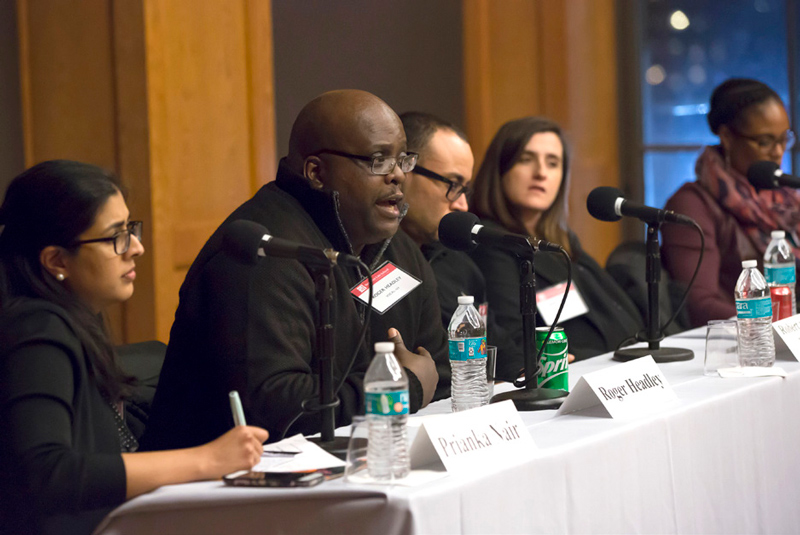
Roger Headley, a community leader at VOCAL-NY, and Robert “Saleem” Holbrook, executive director of the Abolitionist Law Center, both previously incarcerated individuals, discussed their experiences in community activism. They were joined on the panel by Emma Kaufman, assistant professor of law at NYU School of Law, and Jamelia Morgan, associate professor of law at University of Connecticut School of Law and a visiting professor at the Law School this fall. Professors Jocelyn Simonson, codirector of the Center for Criminal Justice, and Prianka Nair, codirector of the Disability and Civil Rights Clinic, moderated the event.
Pistor identified the creation of wealth through specifically legal instruments as one of the biggest reasons for widening inequality. She discussed how the law selectively “codes” certain assets, endowing them with the capacity to protect and produce private wealth, and how lawyers are the keepers of that code.
After the lecture, Professors Julian Arato and Robin Effron, codirectors of the Block Center, with Professors Steven Dean and Frank Pasquale, joined Pistor in a panel discussion on the themes of her book.

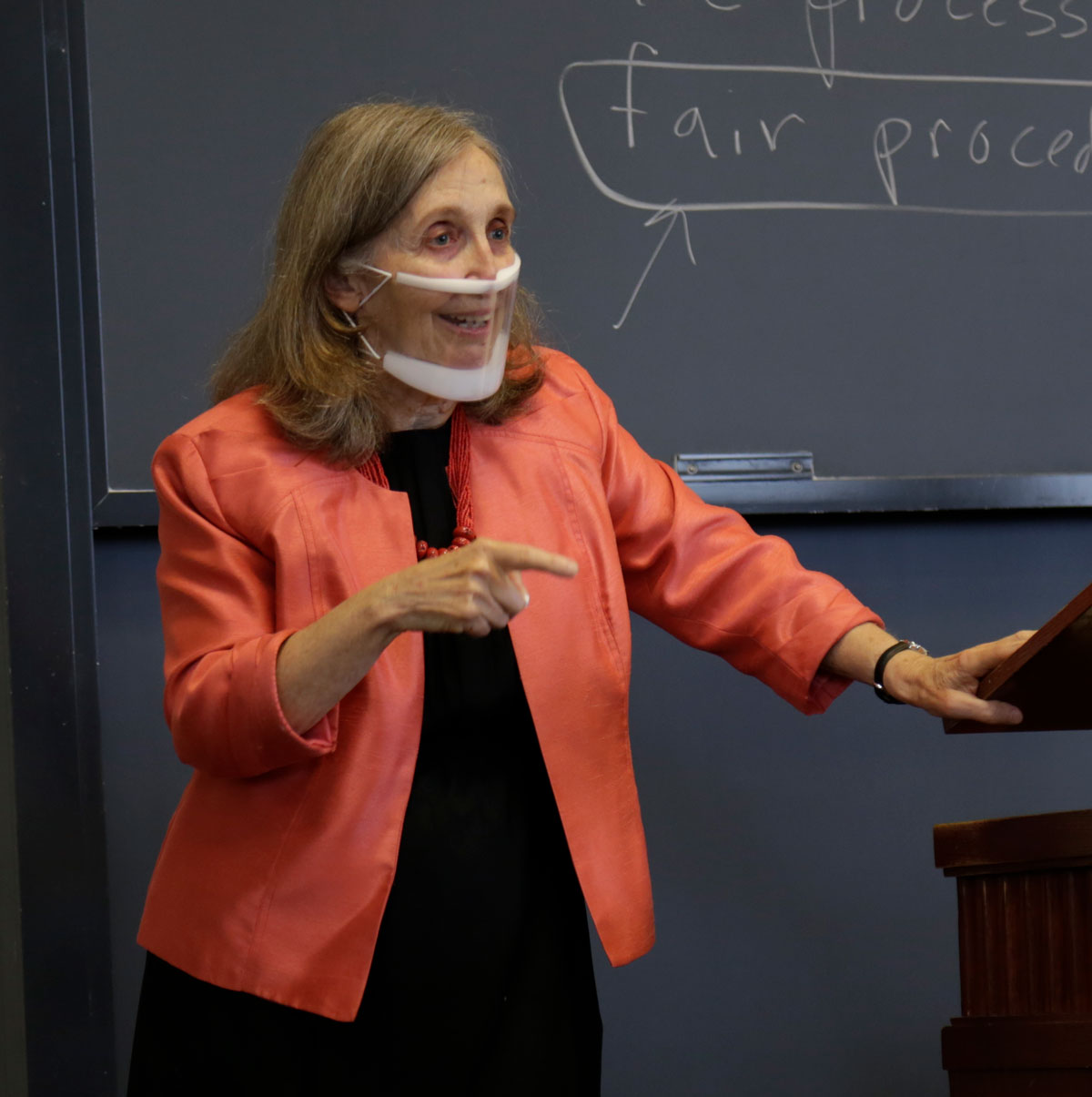
Like many OTHER schools and businesses around the country, Brooklyn Law School quickly responded to myriad challenges in March, when COVID-19 forced the temporary closure of many institutions.
Amid sweeping restrictions instituted by New York State and New York City, the Law School quickly shifted to online learning for the remainder of the spring 2020 semester, and on-campus events went virtual.
The July administration of the New York State Bar Examination moved online as well, and was postponed until October.
After comprehensive planning by the faculty and administration for the fall semester, the Law School offered 1L students the opportunity to take one class per week on campus, with all other courses offered online.
Ever resilient, the Brooklyn Law School community has adapted to the virtual world, with a full slate of events and programs online, including alumni panels, academic symposia and book talks, student-centered programming, and wellness and social gatherings for the Law School community.
this summer, as the COVID-19 pandemic and the mass protests in the aftermath of the death of George Floyd roiled the city and the nation, the Law School launched Law in Time of Crisis, an online interview series that addressed the legal issues raised by the historic events and how the law can be instrumental in navigating the challenges ahead.
In one-on-one conversations, Dean Cahill sat down with members of the faculty to talk about how their individual areas of expertise have been affected by current events.
“[We discuss] how times of crisis give rise to legal issues, sometimes expose flaws or pressure points in the laws that might exist, and possibly create opportunities for legal avenues to remedy the problems that we face,” said Cahill.
Episodes looked at topics including public health, free speech and protest, business, sports, attorney mental health, and the crisis at the border. A special episode featured Deborah Riegel ’93, partner at Rosenberg and Estis and president-elect of the Alumni Association, who discussed the impact of the pandemic on the New York City real estate market.
Student Support Fund
- Assistance for partial or total loss of income
- Resources for remote learning
- Support for childcare issues or health concerns
- Physical or mental health support for themselves or their loved ones
- Significant disruption in living arrangements
- Other unforeseen emergencies
Through the program, alumni volunteer to serve as remote mentors, coaches, or sounding boards for students and recent graduates. Students are encouraged to reach out to alumni mentors to ask career questions and set up informational interviews.
“I want to thank our alumni for stepping up to help our students and recent graduates,” said Dean Cahill. “We’re very pleased that even now, when direct personal interaction is difficult, and yet connection perhaps more important than ever, we can still have mentoring take place through whatever mechanisms are available. I’m really grateful for that support.”
 Volunteer to be a remote mentor: www.brooklaw.edu/advisor
Volunteer to be a remote mentor: www.brooklaw.edu/advisorDebbie Epstein Henry ’94, founder of DEH Consulting, Speaking, Writing and executive consultant at Axiom, moderated the event. Panelists were Andrew Fleming ’16, assistant vice president of legal and compliance at the Blackstone Group; Olivera Medenica ’00, partner at Dunnington Bartholow & Miller; and Colleen Piccone ’90, associate chief counsel at U.S. Customs and Border Protection.
The panelists encouraged the attendees to demonstrate leadership in the workplace despite the sudden lack of resources and to remain flexible in responding to the needs of their clients and employers.
“Lead from where you are with what you have,” said Piccone. “Right now, we don’t have office space, but you can take that up as a new leadership challenge and do what you can on any given day.”
Corporate and Compliance Mentoring Circle, led by Anna Ashurov ’12, partner, commercial strategy, North America, Anheuser-Busch InBev; and Diana Lamorie ’10, vice president of legal operations & senior compliance manager, Two Sigma Investments.
Government and Regulatory Affairs Mentoring Circle, led by Colleen Piccone ’90, associate chief counsel, U.S. Customs and Border Protection; and Nicole Schermerhorn ’12, bank supervision, LISCC, Federal Reserve Bank of New York.
Alternative Careers Mentoring Circle, led by Garynn Noel ’15, vice president, fixed income division, Morgan Stanley; and Carol Nulty Doody ’04, attorney development manager, Skadden, Arps, Slate, Meagher & Flom.
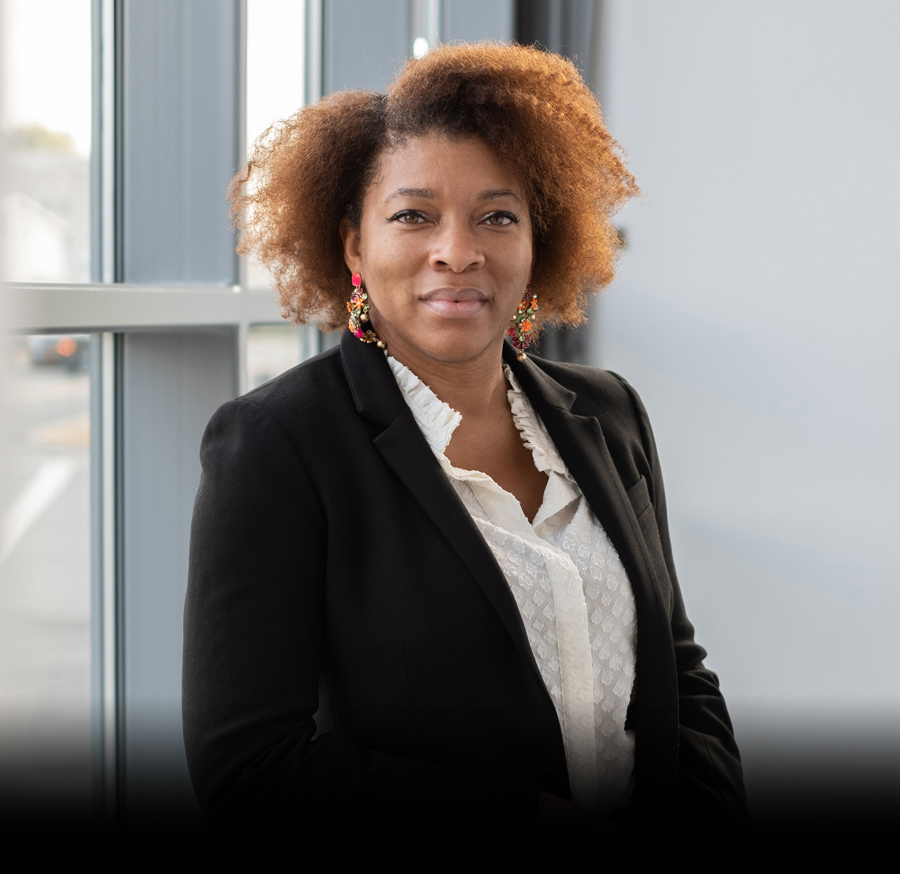
In late March, Varlack, who specializes in risk and crisis management, packed a bag and relocated from Brooklyn to Albany at the request of the administration of Governor Andrew Cuomo to join the task force developing New York State’s initial response to the COVID-19 crisis.
We had to be willing to make tough decisions at times, but you can do that while still motivating people. I loved the fact that in every press conference, the governor would say, “I didn’t do it. We did it. We New Yorkers can figure it out, and we can get it done.”
In late March, Varlack, who specializes in risk and crisis management, packed a bag and relocated from Brooklyn to Albany at the request of the administration of Governor Andrew Cuomo to join the task force developing New York State’s initial response to the COVID-19 crisis.
We had to be willing to make tough decisions at times, but you can do that while still motivating people. I loved the fact that in every press conference, the governor would say, “I didn’t do it. We did it. We New Yorkers can figure it out, and we can get it done.”
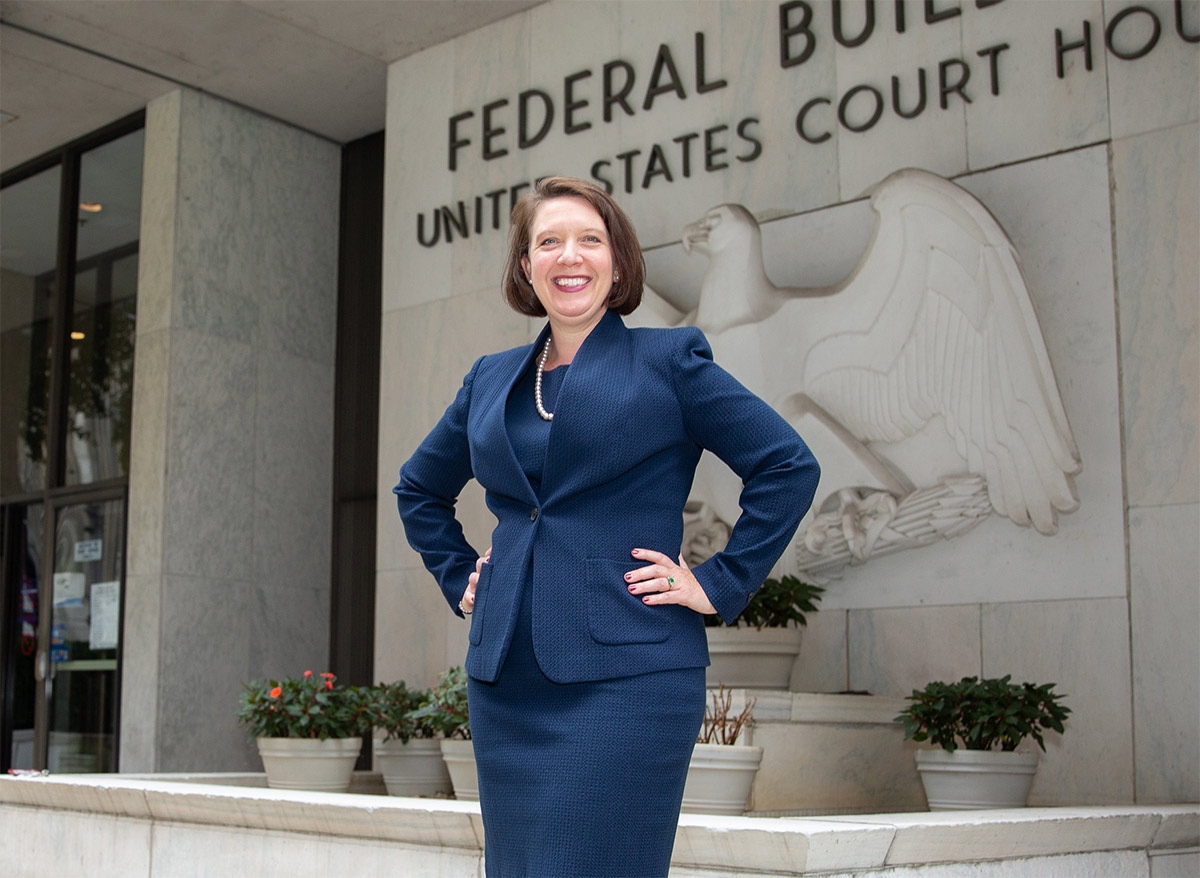

Wilson had watched numerous confirmation hearings available on the Senate Judiciary Committee website, using the questions asked to inform her study. She pored over the constitutional law casebooks that she and her husband, David Wilson ’01, had kept, and even reached out to Professor Maryellen Fullerton, her old Federal Courts professor, who sent her the current edition of a federal courts treatise.

Even with that faculty backing, I always suspected that some of my colleagues did not really understand the program—one of them praised clinics for teaching students what line to stand on to file papers in court. In reality, our students were in the front of the courtroom every day: speaking on the record, representing clients, negotiating dispositions, and even conducting hearings and trials.

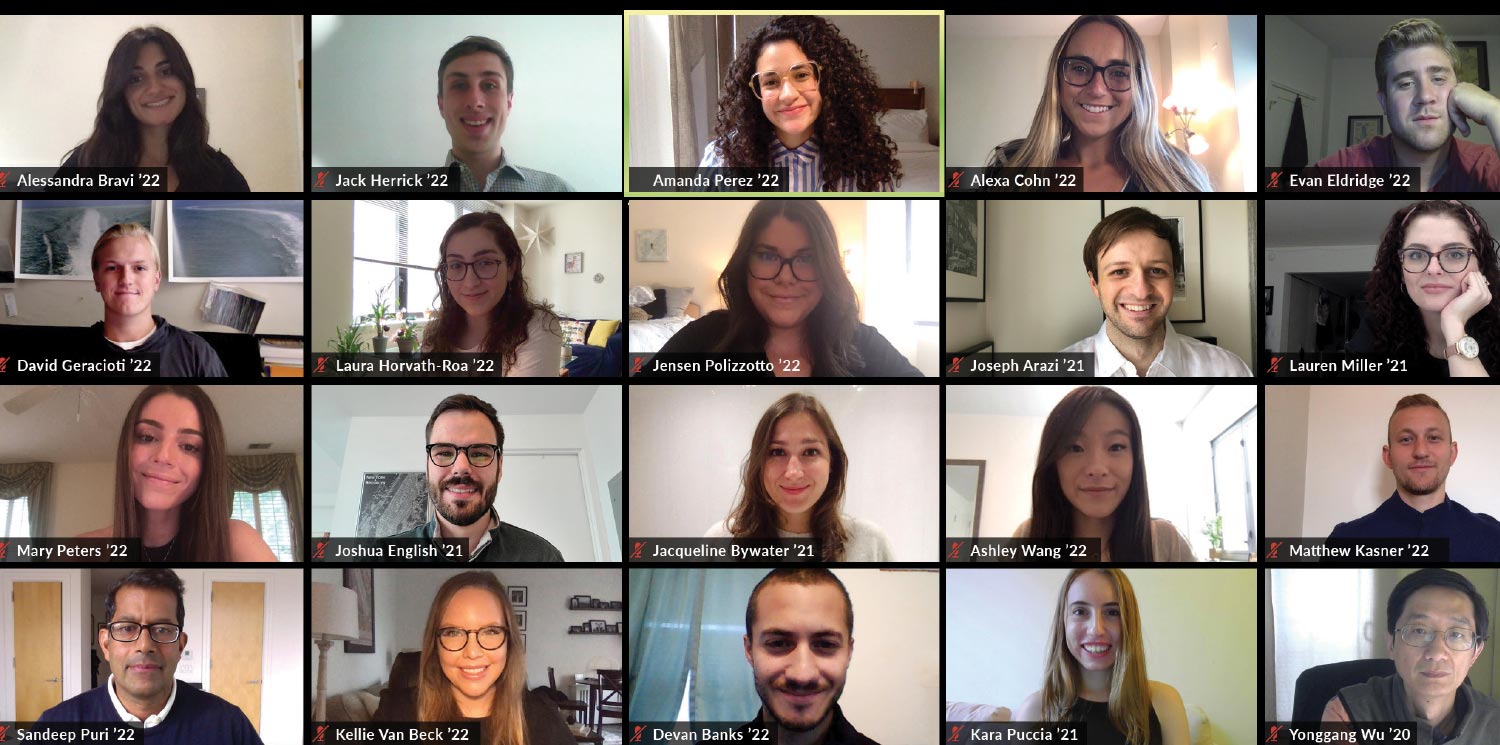
“Brooklyn Law School is well known throughout the legal community for training lawyers who are ready to practice on ‘day one’ of their legal careers,” said Dean Michael T. Cahill. “That reputation is a testament to the vision and focus of our clinical faculty and the drive and sense of purpose of our students. I have no doubt that with our continued investment as a community, for the next 50 years, that reputation will only grow.”

“These new faculty members bring a wealth of expertise, experience, and new ideas to the Law School, in such diverse areas as consumer finance, law and technology, and election law,” said Dean Cahill. “As our curriculum evolves to keep pace with the latest developments in the law, their contributions will be invaluable. We also look forward to their collaboration with our existing stellar group of scholars.”
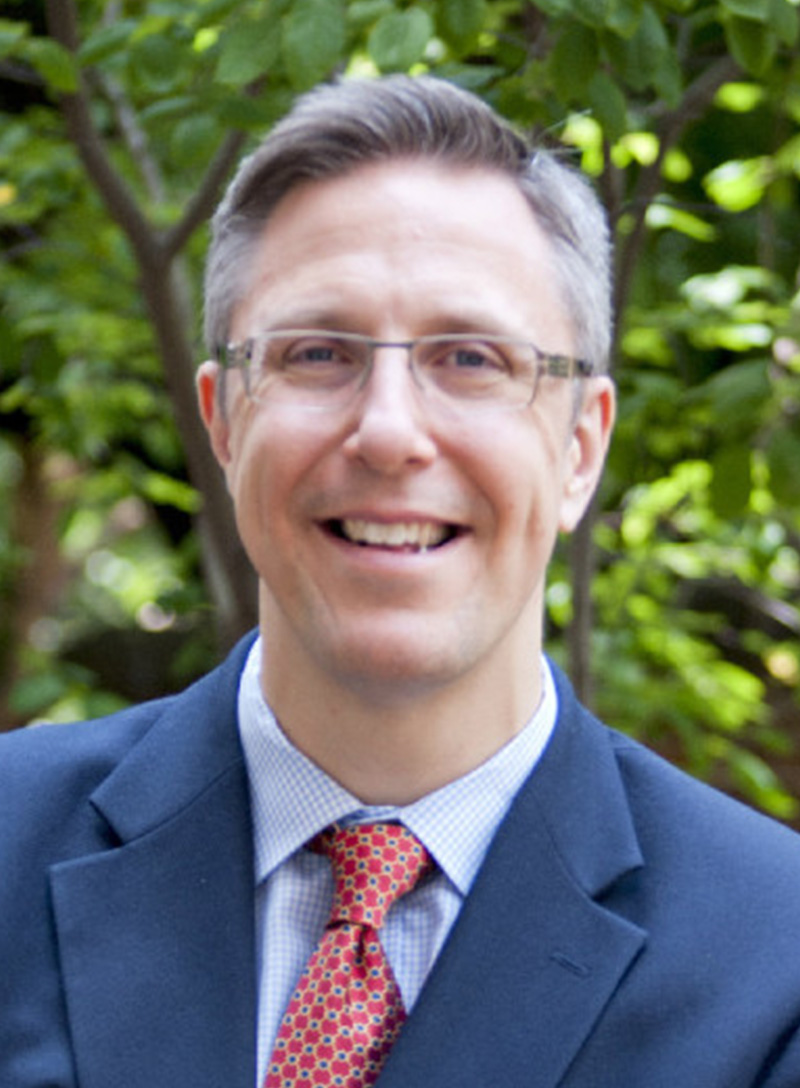
He is the author of New Laws of Robotics: Defending Human Expertise in the Age of AI (Harvard University Press, 2020) and The Black Box Society: The Secret Algorithms That Control Money and Information (Harvard University Press, 2015).
Pasquale has advised business and government leaders in the healthcare, internet, and finance industries, including the U.S. Department of Health and Human Services, the U.S. House Judiciary and Energy & Commerce Committees, the Senate Banking Committee, the Federal Trade Commission, and directorates-general of the European Commission. He presently chairs the Subcommittee on Privacy, Confidentiality, and Security of the National Committee on Vital and Health Statistics, where he is serving a four-year term.
Pasquale’s move was noted by Brian Leiter’s Law School Reports as one of the top 10 lateral moves of the year—the fourth year in a row that Brooklyn Law School has been on the list.
Faculty Chairs Recognize Scholarly Excellence
Susan N. Herman Named Inaugural Ruth Bader Ginsburg Professor of Law
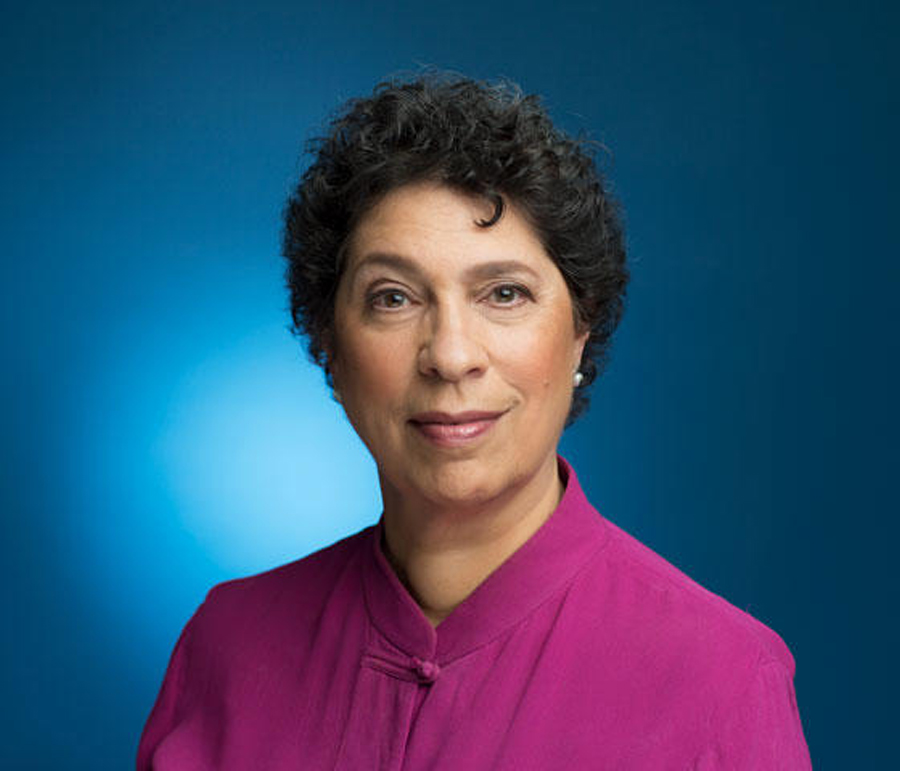
Brooklyn Law School has named Susan N. Herman, president of the American Civil Liberties Union, the inaugural Ruth Bader Ginsburg Professor of Law. The chair was created to honor the life and legacy of the U.S. Supreme Court justice, who died Sept. 18.
“I am thrilled to be named the first occupant of the Ruth Bader Ginsburg Chair at Brooklyn Law School,” said Herman. “RBG has been an inspiration and role model to me, another girl born in Brooklyn who followed her in the ACLU and in teaching law. She taught the world that no path should be closed to anyone on the basis of sex and so many other lessons I hope to carry on.”
Herman teaches courses in constitutional law and criminal procedure and is affiliated with the Center for Law, Language & Cognition and the Edward V. Sparer Public Interest Law Fellowship program. A highly regarded authority and prolific author on constitutional law and criminal procedure, she is routinely sought after by the media to discuss issues on these topics. She has also participated in Supreme Court litigation, writing and collaborating on amicus curiae briefs for the ACLU on a range of constitutional criminal procedure issues. In June 2017 and 2019, Crain’s New York Business named her to its list of “50 Most Powerful Women in New York,” and in October 2019, Trinity College Dublin’s Law Society honored her with its Praeses Elit Award.
William Araiza Named Stanley A. August Professor of Law
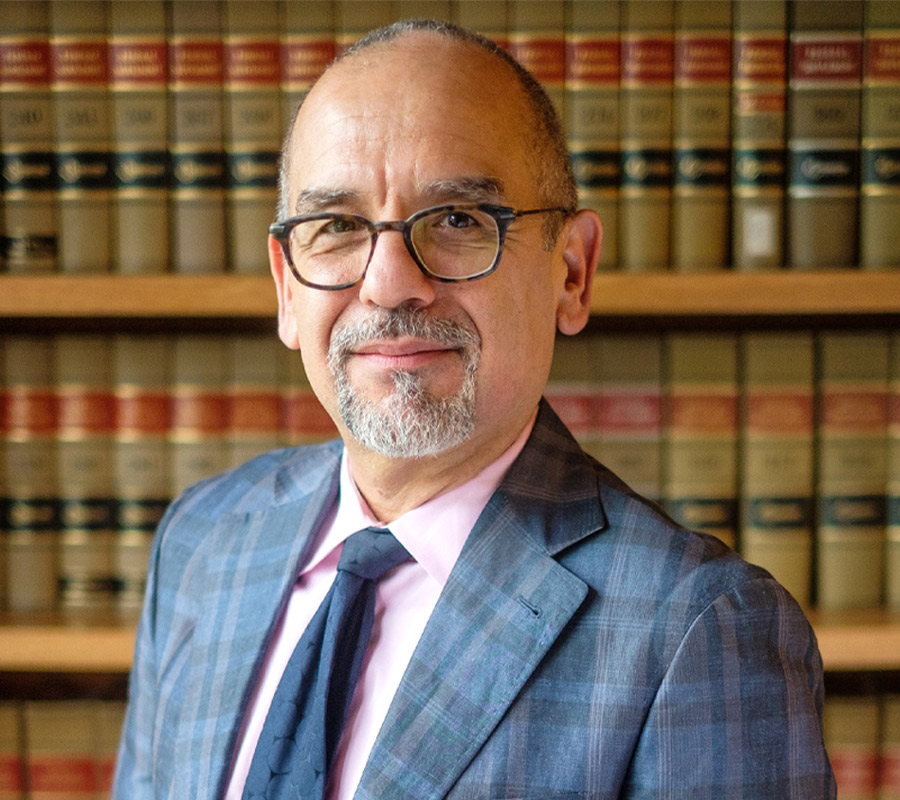
In his book Animus: A Short Introduction to Bias in the Law (NYU Press, 2017), Araiza turned to the concept of animus to explain why some instances of discrimination are unconstitutional. His recent paper, “Resurrecting Animus/Renewing Intent,” Brooklyn Law School, Legal Studies Paper No. 645 (2020), examines the Supreme Court’s rejection of the doctrine in its recent decision on the Deferred Action for Childhood Arrivals (DACA) program.
“I am honored to be named the Stanley A. August Professor of Law,” said Araiza. “I am deeply appreciative that my colleagues saw fit to recognize my work in this way, and I hope the work I produce in the future will validate their regard.”
Araiza clerked for Hon. William Norris of the U.S. Court of Appeals for the Ninth Circuit, and then for Justice David Souter of the U.S. Supreme Court, before practicing with two large law firms in Los Angeles. Araiza served as the vice dean of the Law School from 2015 to 2017, and prior to that, as associate dean for faculty and the Rev. Richard A. Vachon, S.J. Fellow and Professor of Law at Loyola Law School Los Angeles.
Professor Dana Brakman Reiser Named Centennial Professor of Law
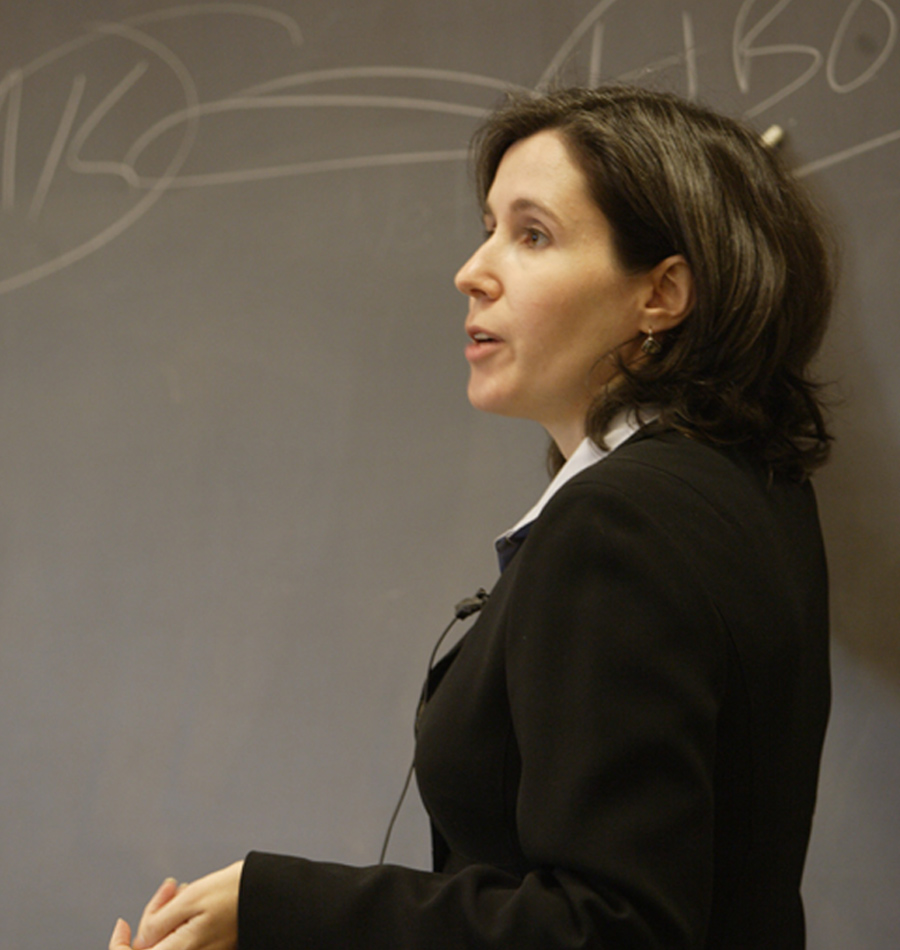
“I am thrilled to accept my appointment and profoundly appreciate this recognition of my scholarly impact,” said Brakman Reiser. “It has been a privilege to develop my academic career within the rigorous and inspiring Brooklyn Law School community, surrounded by supportive colleagues and administrators and passionate students and alumni.”
Brakman Reiser is a member of the American Law Institute and was an associate reporter for its project on the principles of the law of nonprofit organizations. She is also a member and past chair of the section on nonprofit and philanthropy law of the American Association of Law Schools.
Brakman Reiser served as vice dean of the Law School from 2013 to 2015. She was previously a legal fellow in the Office of the General Counsel of Partners HealthCare System and served as a law clerk to Hon. Bruce Selya of the U.S. Court of Appeals for the First Circuit.
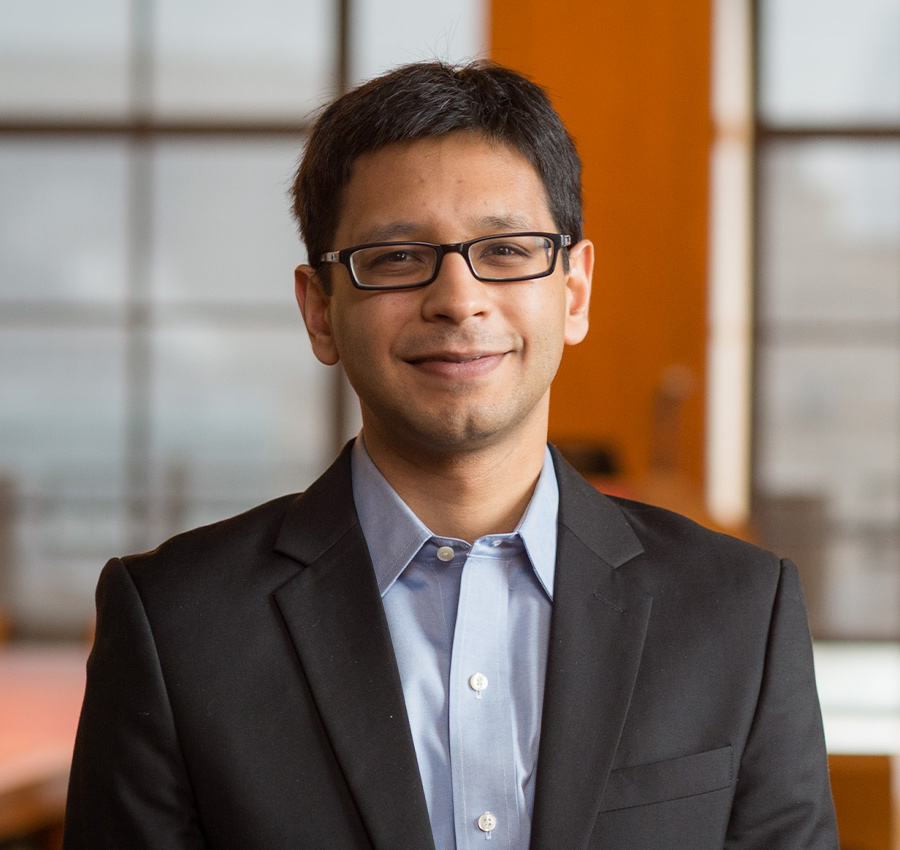
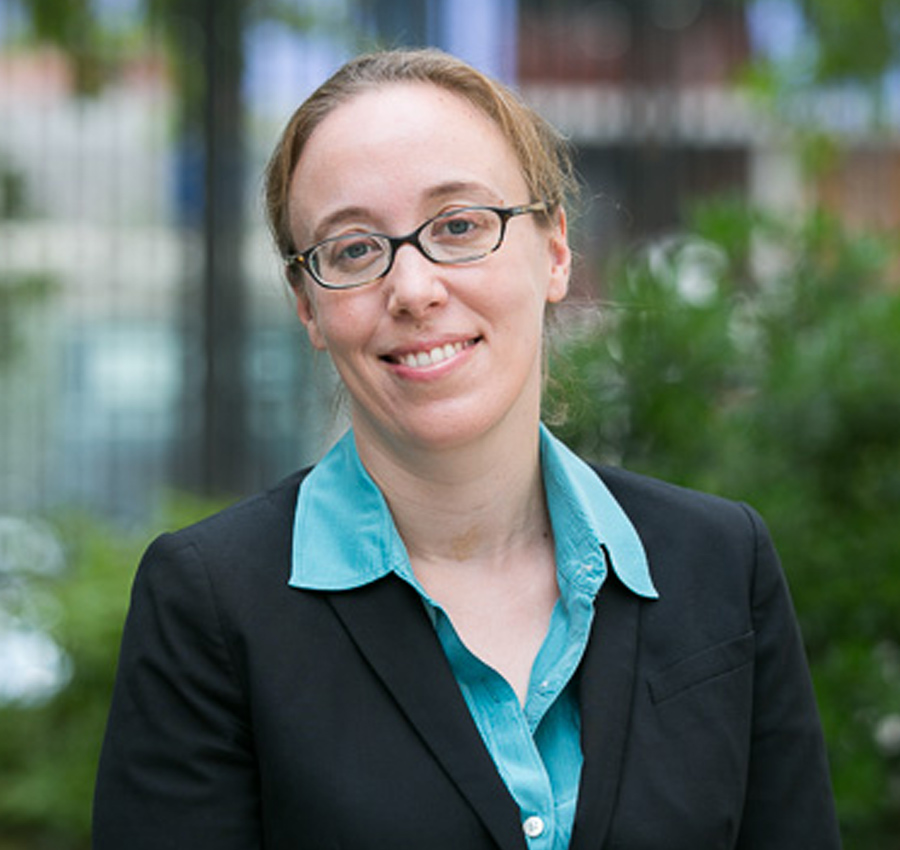

In “The Institutional Design of Community Control,” 108 California Law Review__ (forthcoming 2020), Simonson and Rahman look at current proposals for community control of the police and of economic development, analyzing how local government might shift power and attempt to redress inequality. The authors encourage scholars “to pay closer attention to the specific levers of power over which historically disempowered groups seek control, asking not just whether shifting power downward makes sense, but also how those shifts can (or cannot) be institutionalized.”
The article was referenced in an essay in Slate that suggested Congress could use its power to transform policing and promote racial justice by, for instance, withholding federal funding from localities that do not implement measures such as the creation of civilian commissions transferring “power from the police to the communities most affected by mass incarceration,” as outlined by Simonson and Rahman.
Professor Catherine Kim Examines Politicization of Immigration Bench
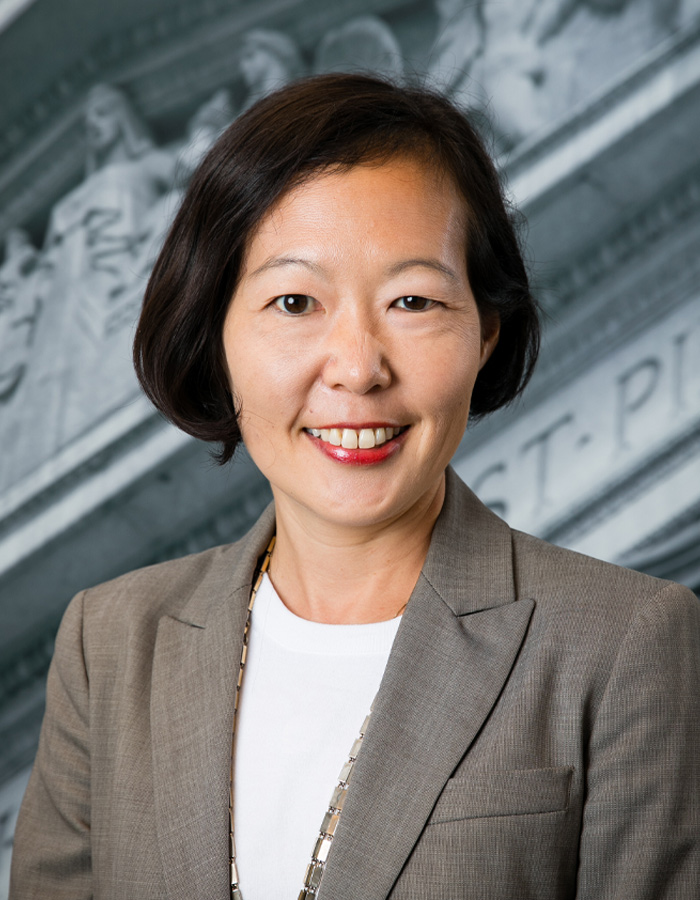
Has the Executive Branch unduly influenced decisions by immigration judges? Professor Catherine Kim, in her article “Presidential Ideology and Immigrant Detention,” 69 Duke Law Journal 1855 (2020), coauthored with Amy Semet, examined 630,000 individual custody decisions by immigration judges from 2001 through June 2019 to explore this question.
A noncitizen charged with deportability may be detained pending the outcome of removal proceedings, often for months or even years. In many instances, individuals are eligible to be released on bond at the discretion of immigration judges. The authors found that noncitizens fared worse in bond proceedings during the current administration than they did during the prior two, even those conducted by appointees who had been relatively favorable toward noncitizens during prior eras. These findings suggest that political actors in the executive branch may be influencing immigrant bond outcomes not only through their power to appoint, but also through their power to supervise.
“Our findings underscore the importance of insulating immigration judges from control by politically motivated superiors,” said Kim. “These judges, like all other judges, should be deciding cases on the merits of individual facts presented at hearing, not on the basis of a political calculus dictated by the White House. Due process requires nothing less.”
To learn more, visit www.brooklaw.edu/facultyscholarship →
Parsing and Managing Inconsistency in Investor-State Dispute Settlement (with Chester W. Brown and Federico Ortino), 21 Journal of World Investment and Trade __ (2020)
WITH REGARD TO inconsistency in legal interpretation in investor-state disputes, a key international trade issue, Arato makes a distinction between the types of norms with which a degree of inconsistency is manageable and tolerable, and those with which inconsistency affects the structural “rules of the game” and is most destructive.
Law Enforcement’s Lochner, 105 Minnesota Law Review __ (forthcoming 2021)
BAER FORECASTS that the government-friendly “first-party” rules that enable the government to demand information from business entities will increasingly come under attack as a result of the Supreme Court’s Fourth Amendment privacy decisions and its emerging stance on corporate personhood. Although she rejects the claim that the demise of these rules would trigger a collapse in regulatory and corporate law enforcement, she believes their loss could exacerbate current problems in regulatory and white-collar enforcement.
(Almost) No Bad Drugs: Near-Total Products Liability Immunity for Pharmaceuticals Explained, 77 Washington & Lee Law Review 3 (2020)
Although almost every major pharmaceutical manufacturer has shelled out millions in settlements for misconduct related to the marketing of prescription drugs, they enjoy near immunity from liability—in particular products liability—when their products are found to be defective. Bernstein examines the three categories of product defect liability and how seldom judges apply them in pharmaceutical cases.
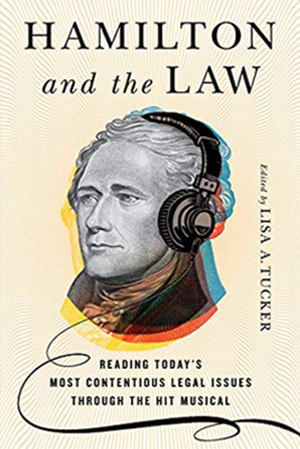
In “Finding Constitutional Redemption through Hamilton,” Mulligan examines the meaning and controversy over casting actors of color as historical figures who were white. “We construct who America is,” she writes. “Hamilton participates in that construction by ‘reallocating the ownership of the republic’ to people who have historically and unjustly been alienated from it.”
In “Taking Law School Musicals Seriously: A Little Love Letter to Legal Musicals and the Lawyers Who Love Them,” Effron, who enjoyed a previous career as a singer and musician, reflects on the importance of the “law revue,” a student-produced annual musical parody of law school and the law, to her ability to tie her two worlds together. “It was the repetition and evolution of law in the books and law on the stage that kept me afloat and propelled me toward my career in which I find utter joy and satisfaction,” she writes.
Professor Julian Arato, codirector of the Dennis J. Block Center for International Business Law, was awarded the prestigious Francis Deák Prize by the American Society of International Law for his article “The Private Law Critique of International Investment Law,” 113 American Journal of International Law 1 (2019). The prize is awarded annually for the best scholarly article by a younger author published in the American Journal of International Law.
An article authored by Professor Miriam Baer, “Pricing the Fourth Amendment,” 58 William & Mary Law Review 1103 (2017), was cited by Hon. Guido Calabresi in his concurrence in United States v. Weaver, 975 F.3d 94 (2d Cir. 2020), which reversed a lower court’s holding that a frisk for weapons was appropriate under the Fourth Amendment. In his concurring opinion, Judge Calabresi criticized the exclusionary rule and noted that several scholars had advocated alternative mechanisms to punish violations of Fourth Amendment rights. Baer’s article, which hypothesizes a tax-driven approach to searches and seizures, was among the three he cited.
Professor Susan Hazeldean’s paper, “Privacy as Pretext,” 104 Cornell Law Review 1719 (2019), was selected as a winner of the Southeastern Association of Law Schools’ call for papers for the 2020 conference. The awards ceremony, typically held during a luncheon at the annual meeting, was held virtually this year.
Professor Edward Janger joined with other bankruptcy scholars on the Small Business Committee of the Bankruptcy & COVID-19 Working Group, formed to study financial distress and COVID-19 and make policy recommendations. The committee submitted a letter to congressional leaders proposing changes to the Small Business Reorganization Act of 2019 that would help small businesses affected by COVID-19.
Professor Minna Kotkin was named an academic fellow for the Pound Civil Justice Institute following her participation as a panelist for the Institute’s 2020 Judges Forum. The Pound Civil Justice Institute is a national legal think tank created by pioneering members of the trial bar and dedicated to ensuring access to justice for ordinary citizens.
Professor Emeritus Norman S. Poser’s book The Birth of Modern Theatre: Rivalry, Riots, and Romance in the Age of Garrick (Routledge, 2018), was a finalist for the Society for Theatre Research Theatre Book Prize 2020, awarded annually to the best new book on any aspect of British or British-related theater history and practice.
Professor Janet Sinder, director of the Law School’s library, was awarded the top prize in the AALL/LexisNexis Call for Papers in the open category by the American Association of Law Libraries for her paper “Correcting the Record: Post-Publication Corrections and the Integrity of Legal Scholarship,” 112 Law Library Journal __ (forthcoming 2020). This is the second time Sinder has received the award, having previously been recognized in 1997.
“As members of the Brooklyn Law School faculty, we are compelled to act,” the resolution stated in part.
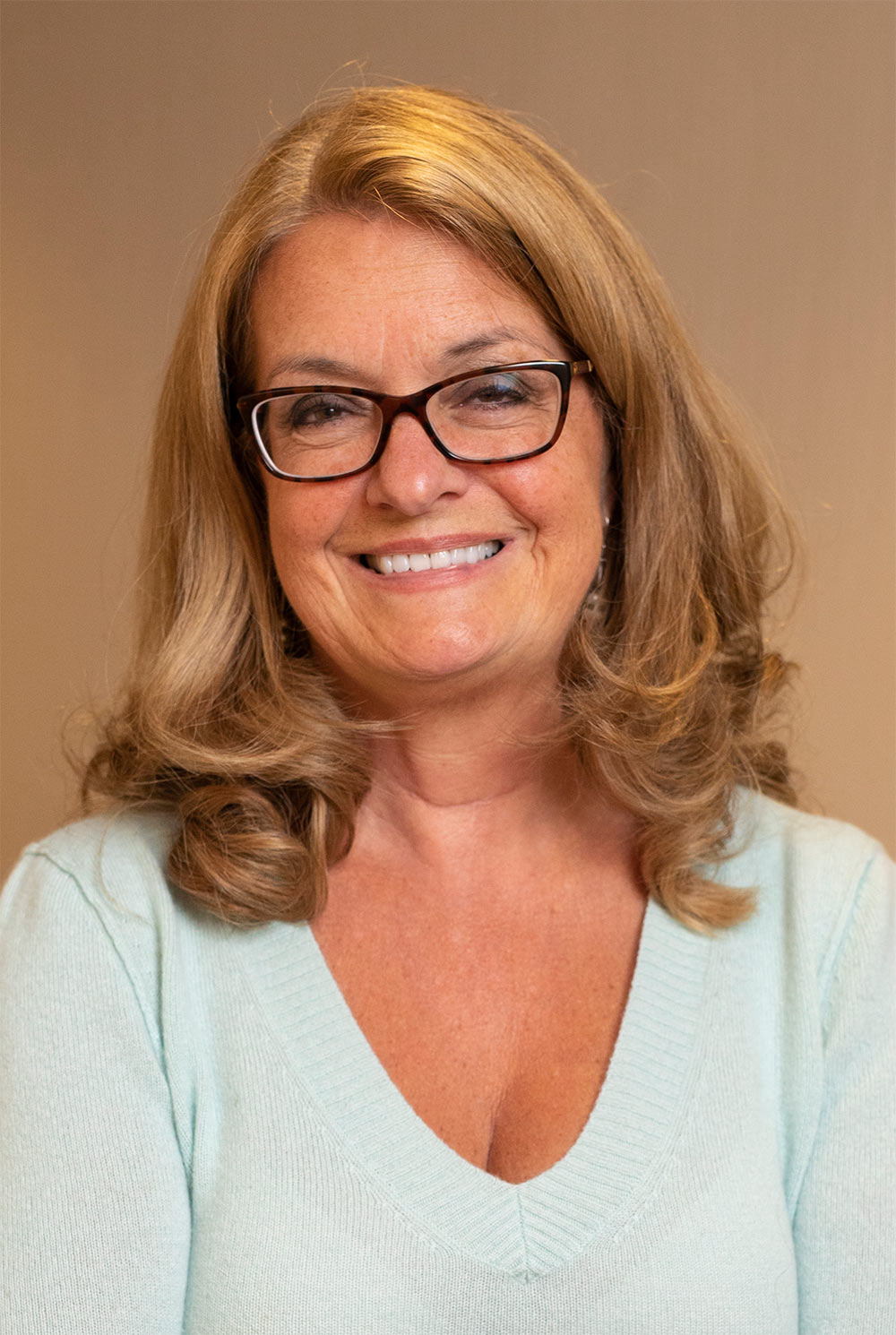
“We have so many alumni who are nearby, as well as many who are around the world,” said Fitch, whose husband Edward Flanders ’89 and stepson Dylan Flanders ’21 are also part of the Law School community. “We want to bring those people back in and remind them how important the Law School has been to them.”
Fitch had also previously served as president from 2015 to 2017. In her second term, which started last year, she wanted to build on the work of her successor, Michael Grohman ’83, and continue to revamp the organization. She added three new committees: Professional Development and Mentoring, Alumni Activities, and Philanthropy, giving alumni more ways to become engaged at a higher level.
- Alumni Board President
- President-Elect
- Chair, Professional Development and Mentoring
- Chair, Alumni Activities
- Chair, Philanthropy
- Member-at-Larg
- Member-at-Larg
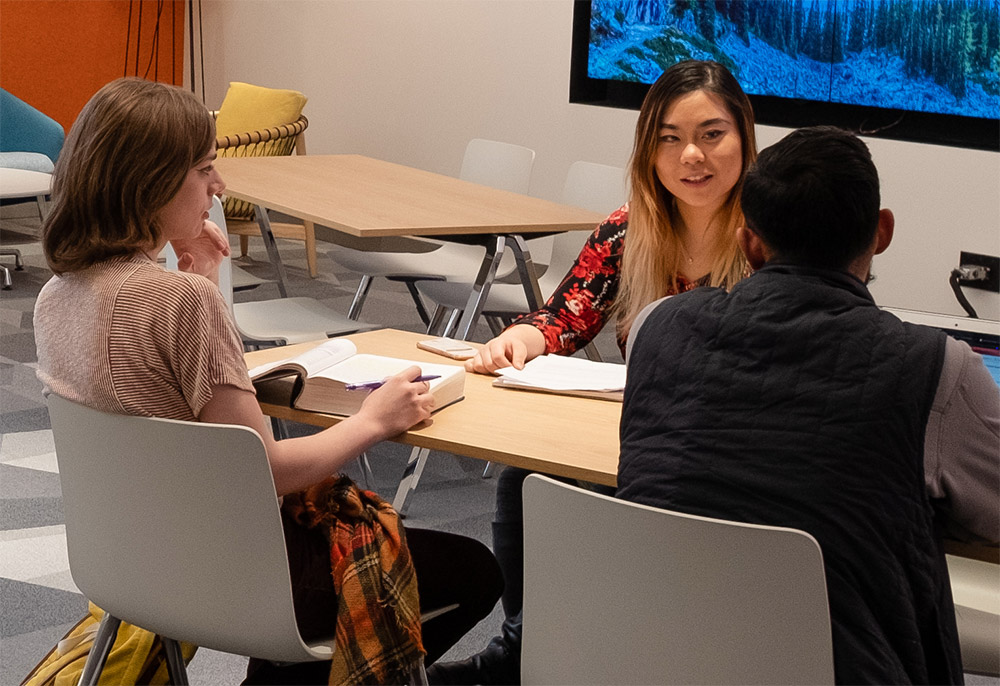

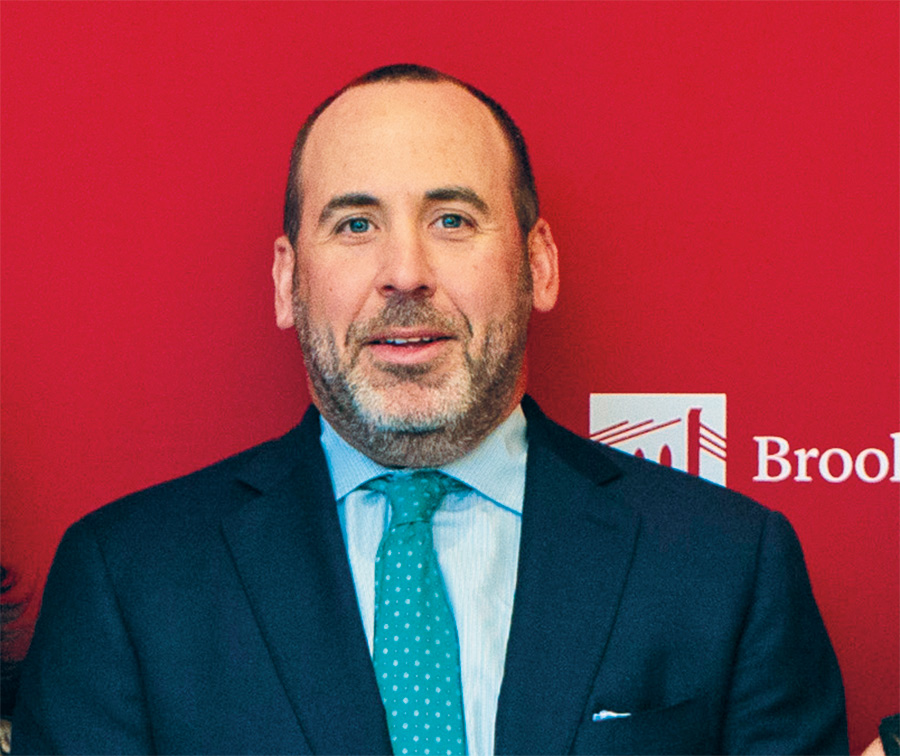
At the Real Estate Roundtable Discussion “Starting or Reinvigorating a Real Estate Legal Career in 2020 and Beyond,” more than 60 current students and recent graduates learned how to break into the industry from a distinguished panel of successful alumni.
The virtual event featured Tim Oberweger ’05, vice president at Stewart Title Company and member of the Brooklyn Law School Alumni Board, who served as moderator; Lisa Bova-Hiatt ’94, executive vice president for legal affairs and general counsel at the New York City Housing Authority; Adjunct Professor Richard J. Sobelsohn ’98, vice president, legal, at Cohen Brothers Realty; Craig L. Price ’99, partner at Belkin, Burden, Goldman; Robert Alleman ’10, shareholder at Greenberg Traurig; Niki Tsismenakis ’11, partner at Goldstein Hall; and Karl Dowden ’13, of KarlDowdenLaw.
In his first year on the job, Dean Cahill traveled to introduce himself to the Law School’s widespread alumni community, making stops in Arizona, Florida, and Washington, D.C.
Cahill kicked off 2020 in Washington, D.C., at the Association of American Law Schools’ annual meeting in January. At an accompanying alumni event, faculty members reconnected with conference attendees and local alumni.
In February, Cahill attended an event in Phoenix at the Royal Palms Resort and Spa, where more than 20 alumni were in attendance, including Lawrence Sucharow ’75, a member of the Board of Trustees.
Later that month, Cahill traveled to Florida to attend an alumni event at the Kimpton EPIC in Miami, home to an increasingly active chapter of the Alumni Association. Local alumni leaders, including Roger Slade ’88, Jason Goldberg ’11, and Gina Shlaferman ’12, look forward to continuing the momentum generated by the event. He then met with alumni at an event in Boca Raton at the Polo Club, hosted by Board of Trustees member emerita Florence Subin ’75.
More in-person alumni events across the country will be scheduled once large gatherings are safe for attendees.
Jeffrey Forchelli has been named to Wagner College’s Board of Trustees. Forchelli is a member of the Brooklyn Law School Board of Trustees and chairman and comanaging partner of Forchelli Deegan & Terrana. The Jeffrey D. Forchelli Conference Center in Feil Hall is named in honor of his family.
Michael Rikon was selected for the Top Attorney of the Decade Award for 2020 by the International Association of Top Professionals. Rikon is a partner at Goldstein, Rikon, Rikon & Houghton and focuses his practice on condemnation and eminent domain cases.
Marshall D. Feiring joined Dentons as partner in its capital markets group. He was previously at Sidley Austin.
Eileen T. Nugent joined Morrow Sodali’s newly formed strategic advisory board. She is currently of counsel at Skadden, Arps, Slate, Meagher & Flom in its mergers and acquisitions group. She is also a member of the Brooklyn Law School Board of Trustees.
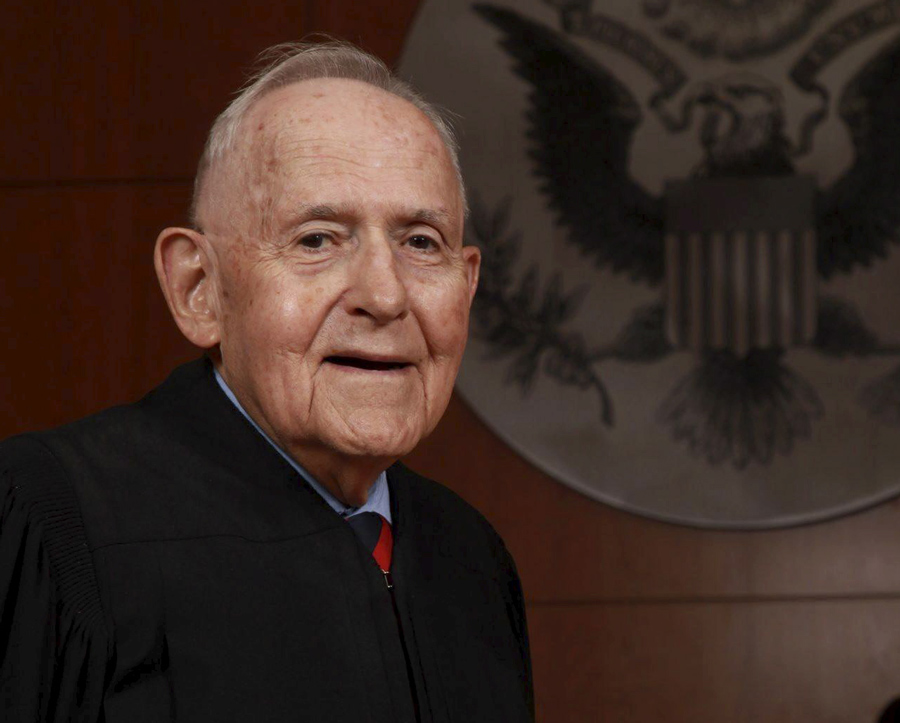
Spatt was known for his extraordinary work ethic, presiding in his chambers six days a week even after gaining senior status at the court in 2004. Even during the COVID-19 pandemic, Spatt maintained a full case load while working from his home in Commack, N.Y.
“Beyond having a first-rate legal mind, Judge Spatt may have been the most tireless and diligent worker Brooklyn Law School has ever produced,” said Dean Cahill. “Not a single day of his long and admirable life was spent idly or in vain. He fully embodied the professionalism we hope to instill in all of our graduates.”

Closing


These problems and others have left many wondering whether American democracy can survive 2020. Although the analysis is complex, the short answer, I believe, is yes. Daunting as they are, the challenges that the country now faces pale in comparison to the fraud, discrimination, and sheer violence that have plagued it historically.
This is not to downplay the significance of the immediate threats posed, but to encourage the many officials committed to safeguarding elections to consider what might be done to mitigate them. Clarity can be hard to come by in the eye of the storm, but reforms in at least three critical areas seem plainly necessary.

